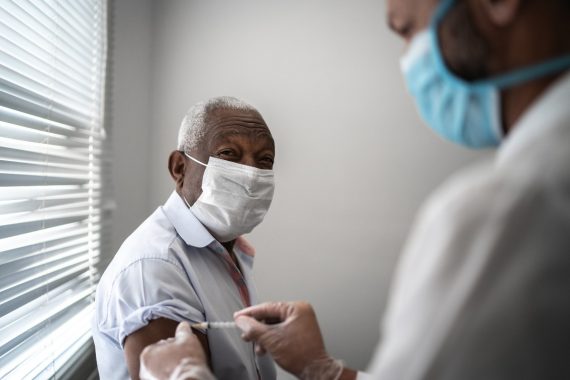Pneumococcal vaccine to be supplied centrally from June amid prior shortages

GP practices will be able to order the pneumococcal vaccine from a central stock from next month, with previously unvaccinated patients to be prioritised for the jab, Public Health England (PHE) has announced.
In a letter addressed to primary care, PHE said that from 1 June, it will supply practices with the pneumococcal vaccine for the routine immunisation programme and immunising those with underlying medical conditions, meaning they will not have to source it locally, as they have in other years.
It recommended that GPs ‘prioritise previously unvaccinated individuals and booster doses’, once the supply route changes next month, according to the existing priority order, and encouraged practices to use locally procured vaccines until 1 June to prevent errors in reimbursement claims.
The change in supply route follows shortages of the pneumococcal vaccine in recent years, leaving GPs unable to vaccinate vulnerable patients against infections, with practices previously being told to spread out delivery of the jabs to combat this.
Watford GP Dr Simon Hodes told Pulse: ‘We have had a very long waiting list of patients keen to have their pneumococcal vaccines. This has left patients at risk of pneumonia and some strains of meningitis. Because the PPV is only given to at risk patients or adults over 65, you clearly don’t want these people left exposed to the bugs, as many have been for quite a while.
‘We have all seen from Covid how effective and important vaccines are – especially for those at risk. We just haven’t been able to get supplies.’
Following the move to a central ordering system, ‘one would hope that they will be able to match the supply with the demand – as they have with the covid vaccine programme, and indeed with the 50-64 flu catch up last season’, he added, particularly as data about how many eligible patients there are in each practice should be held at national level.
Dr Hodes said: ‘Having the correct supply benefits patients most of all, as they will get the vaccine they need on time. From the GP point-of-view, we don’t want vaccines sitting around going out of date in the fridge, and under the default position where we have to order in, it’s very hard to get it right. Ultimately if one practice has too many, that means another practice hasn’t got enough.’
PHE said that once practices are using centrally procured vaccines, they will not be able to submit claims for vaccine reimbursement.
The letter said: ‘We recognise that there may be a short period of time as you transition to the use of centrally supplied vaccine during which you may have both locally procured and centrally supplied vaccine available for use which may lead to errors in reimbursement claims. To minimise this, you are encouraged to use all locally procured vaccines prior to the 1 June 2021 or soon after.’
The vaccine will be available to order from PHE’s ImmForm website from June, meaning practices should ensure they have an account to enable access, PHE said.
Visit Pulse Reference for details on 140 symptoms, including easily searchable symptoms and categories, offering you a free platform to check symptoms and receive potential diagnoses during consultations.











